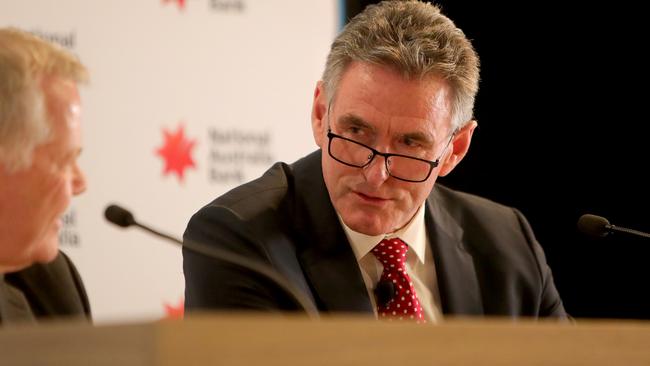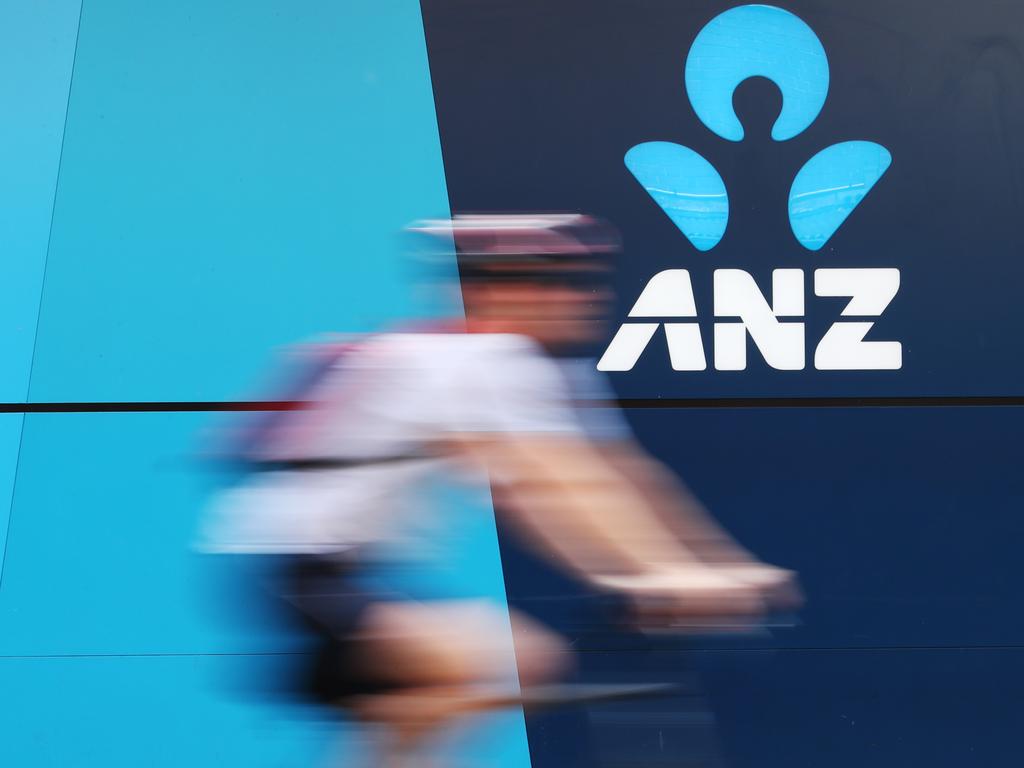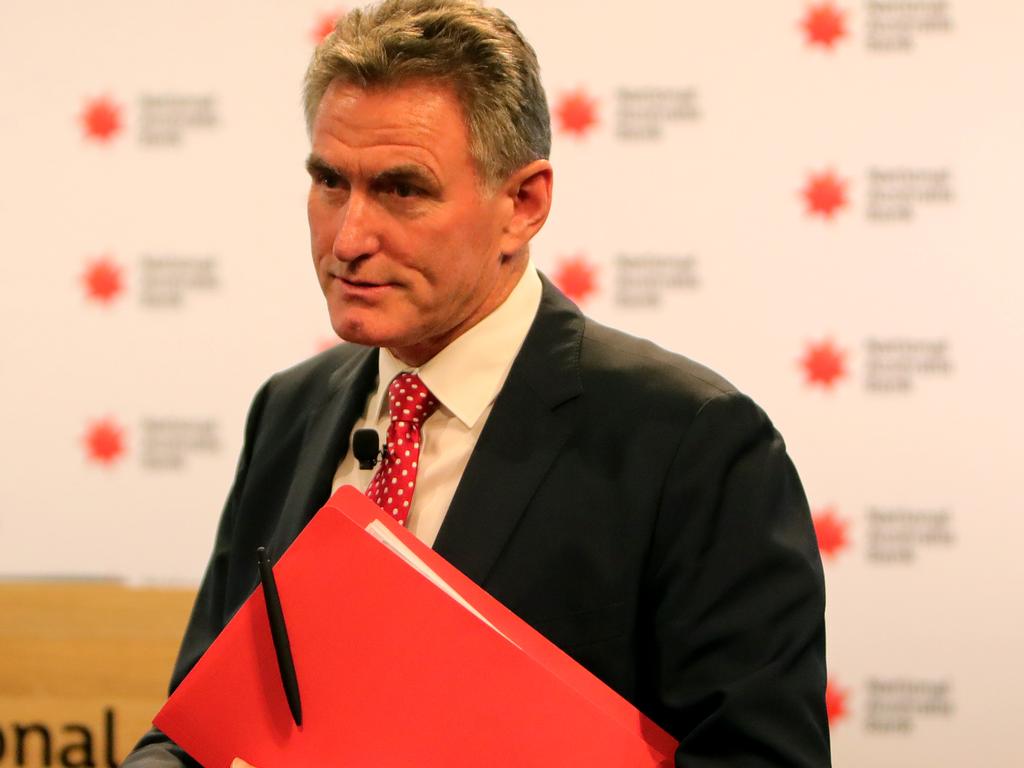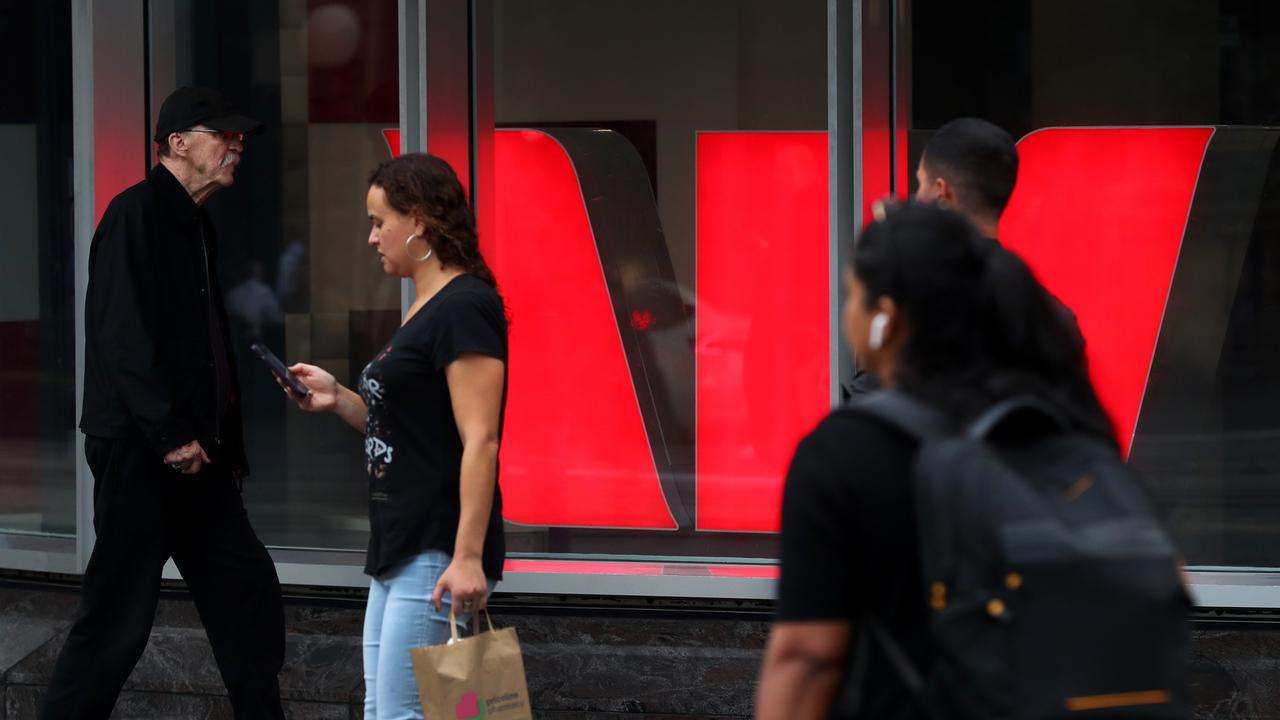National Australia Bank in trading halt for $3.5bn capital raising as half-year profit slumps
NAB secures institutional support for its $3.5bn capital raising after bringing forward half-year results that reveal a big drop in profit and slashed dividend payout.

National Australia Bank has secured support from institutions for its monster $3.5bn capital raising after surprising the market by bringing forward its interim results to announce a 51 per cent fall in half year cash net profit to $1.44bn.
The Melbourne-based bank was seeking $3bn from institutional shareholders, which was covered just hours after it was launched on Monday, with the lender to push ahead with a $500m placement from retail investors.
The bank also slashed its dividend by more than 60 per cent to just 30c a share and announced a statutory net profit was $1.31bn.
The “result has been materially impacted by the COVID-19 pandemic,” NAB’s new chief executive Ross McEwan said in a statement to the ASX.
The earnings result was struck on a 3.4 per cent fall in revenue for the period. Mark-to-market losses on the bank’s vast holdings of bonds also pressured revenue from its markets and treasury business.
But with the capital raising underway, “we’ve put ourselves in a very, very good position. The bank has to be ready for anything thrown at it,” Mr McEwan said on a conference call on Monday morning. “Banks which are in a very strong position come out best in a crisis. That’s what I’m positioning (NAB) for.”
Asked if there would be a V or U-shaped economic recovery after the coronavirus threat had passed, Mr McEwan said: “I’m not too sure. At this stage we don’t know and I’d be very surprised if anyone did. It’s very uncertain times.” Small businesses was “hurting very badly”, he said. “They’ve seen their income stop within a week.”
NAB last week disclosed a host of first-half charges, noting profit would be hit by a $1.14bn reflecting software and life insurance write-downs and higher customer compensation.
Macquarie Capital and Goldman Sachs will led the raising for the bank.
Shares in the institutional placement were sold at $14.15 apiece, a 10.2 per cent discount to the April 24 close.
Mr McEwan said the bank had pushed ahead with the capital raising as it braced for a recession in Australia and much higher unemployment over 2020 and into 2021.
“Given the uncertain outlook, we are taking proactive steps to further strengthen our balance sheet,” he said.
“These actions are intended to provide us with sufficient capacity to continue supporting our customers through the challenging times ahead, as well as assist to manage through a range of possible scenarios, including a prolonged and severe economic downturn,” he said.
Brokerage UBS said NAB’s $800m-plus credit overlay for COVID-19 “appears slightly light” and assumed a V-shaped recovery in the economy. Still, UBS analyst Jonathan Mott said capital strengthening “appears prudent.
“But we question paying a dividend to shareholders while simultaneously raising $3.5bn in fresh equity below tangible book value,” Mr Mott told clients in a note.
COVID-19 losses
The bank also revealed a sharp run up in lending losses as the economy was hit by the COVID-19 shutdown. Credit impairment charges increased 158.6 per cent to $1.16 billion and as a percentage of gross loans and acceptances rose 23 basis points to 38 basis points.
NAB set aside $828m of additional collective provision as it prepares for a slowing economy with nearly all of this due to potential COVID-19 impacts.
The ratio of 90-plus days past due and gross impaired assets to gross loans and acceptances increased 18 basis points to 0.97 per cent, largely due to increased delinquencies across the Australian mortgage portfolio.
Net interest margin declined 1 basis point to 1.78 per cent, but was flat excluding markets and treasury. NAB said the fall reflected repricing across its home lending portfolio, offset by a lower earnings rate on deposits and capital given the impact of a low interest rate environment, combined with competitive pressures.
Following the capital raising NAB’s core equity tier-1 ratio will rise to 11.2 per cent. Meanwhile the reduction of dividend is set to save a further $1.6bn or 37 basis points of CET1.
‘Need to share pain’
At the same time NAB’s board and senior management “acknowledge the need to share the pain felt by our customers, shareholders and more broadly” and plan to cut directors fees and shelve short term bonus payments.
The business and private bank fell by 5.7 per cent to $1.38bn. However earnings at its retail banking business were up 26.4 per cent to $699m. Elsewhere NAB’s corporate and institutional saw a 10.2 per cent decline in earnings to $701m. Wealth earnings nearly halved to $42m but New Zealand earnings were up 6.4 per cent to $535m.
NAB chairman Philip Chronican and the other directors will each forego 20 per cent of their base fees for the second half of 2020. CEO Mr McEwan will forego 20 per cent of his fixed remuneration for the second half, and Mr McEwan and the bank’s executive leadership team will forego short-term bonus payments for financial 2020.
NAB’s shares closed at $15.76 on Friday.
NAB also announced two new appointments to its group executive team, with Rachel Slade appointed group executive personal banking and Nathan Goonan appointed group executive strategy and innovation.
UBS’ Mr Mott said in a note to clients last week that it was “the most challenging outlook” for the banking sector in at least 75 years.
Bank regulator the Australian Prudential Regulation Authority this month urged banks to seriously consider deferring decisions on dividends until the economic outlook was clearer.







To join the conversation, please log in. Don't have an account? Register
Join the conversation, you are commenting as Logout